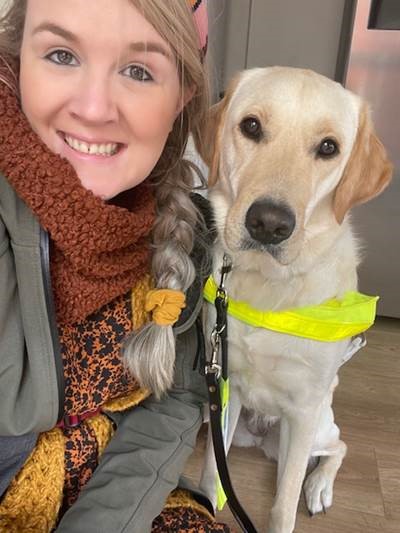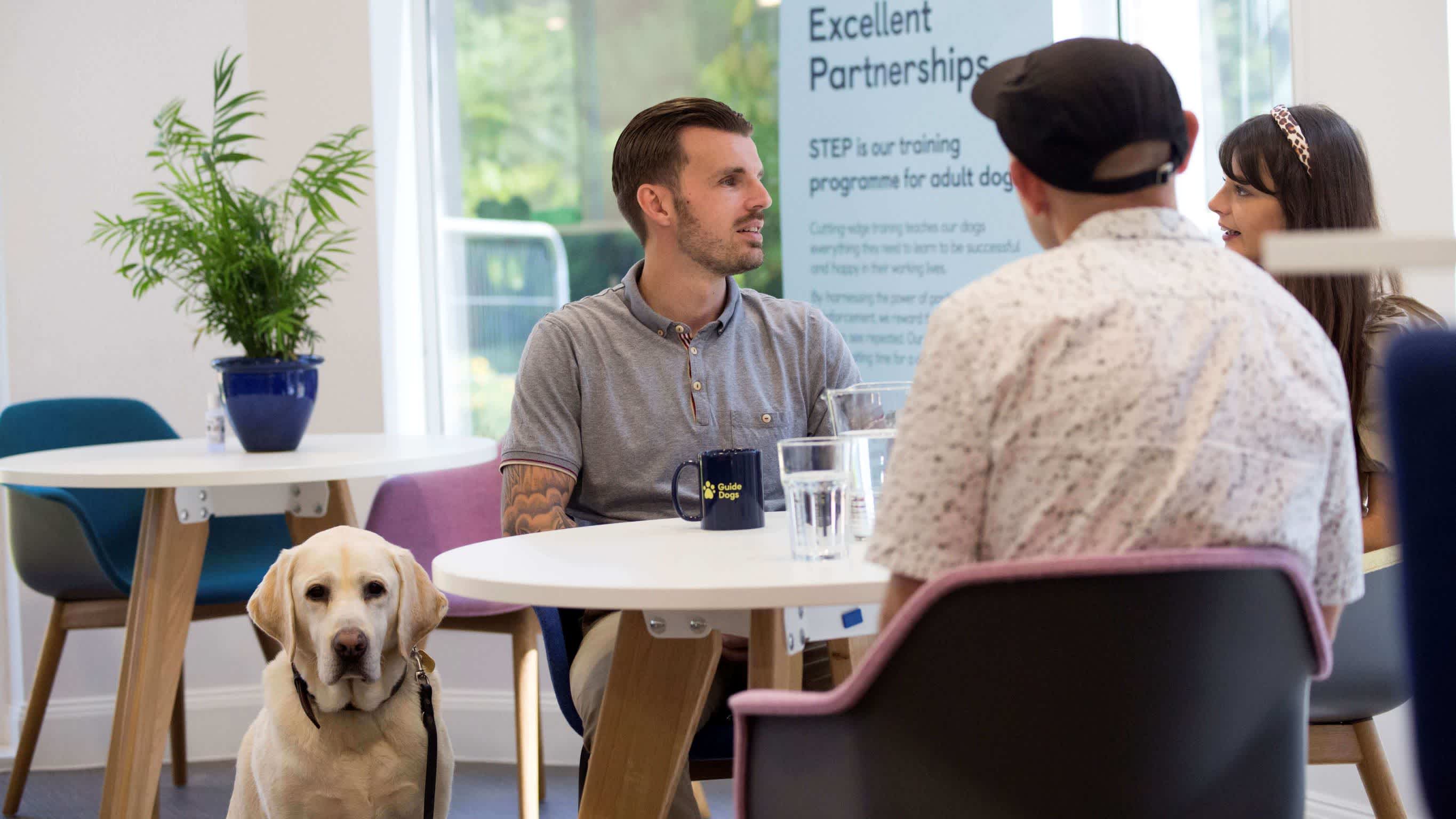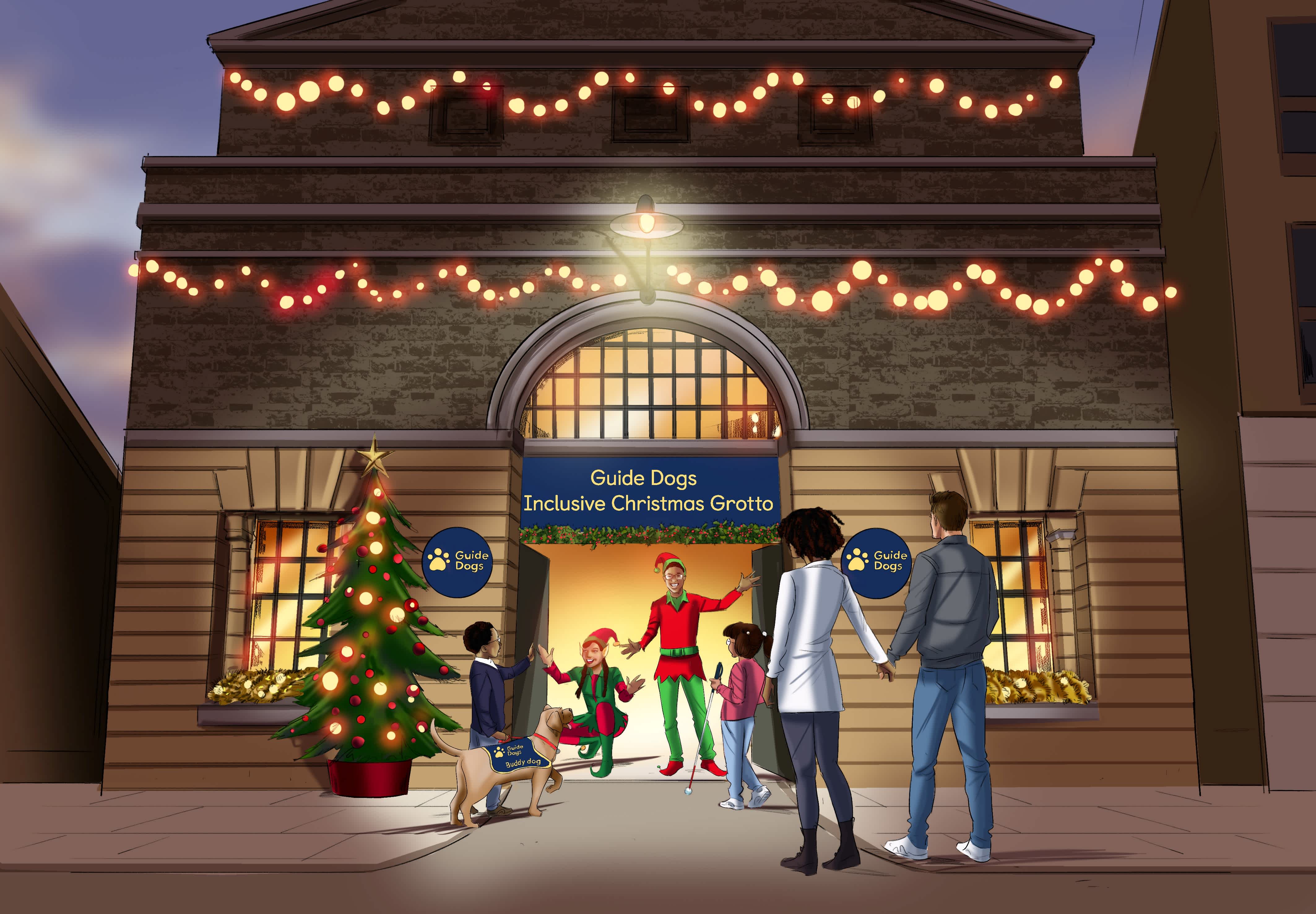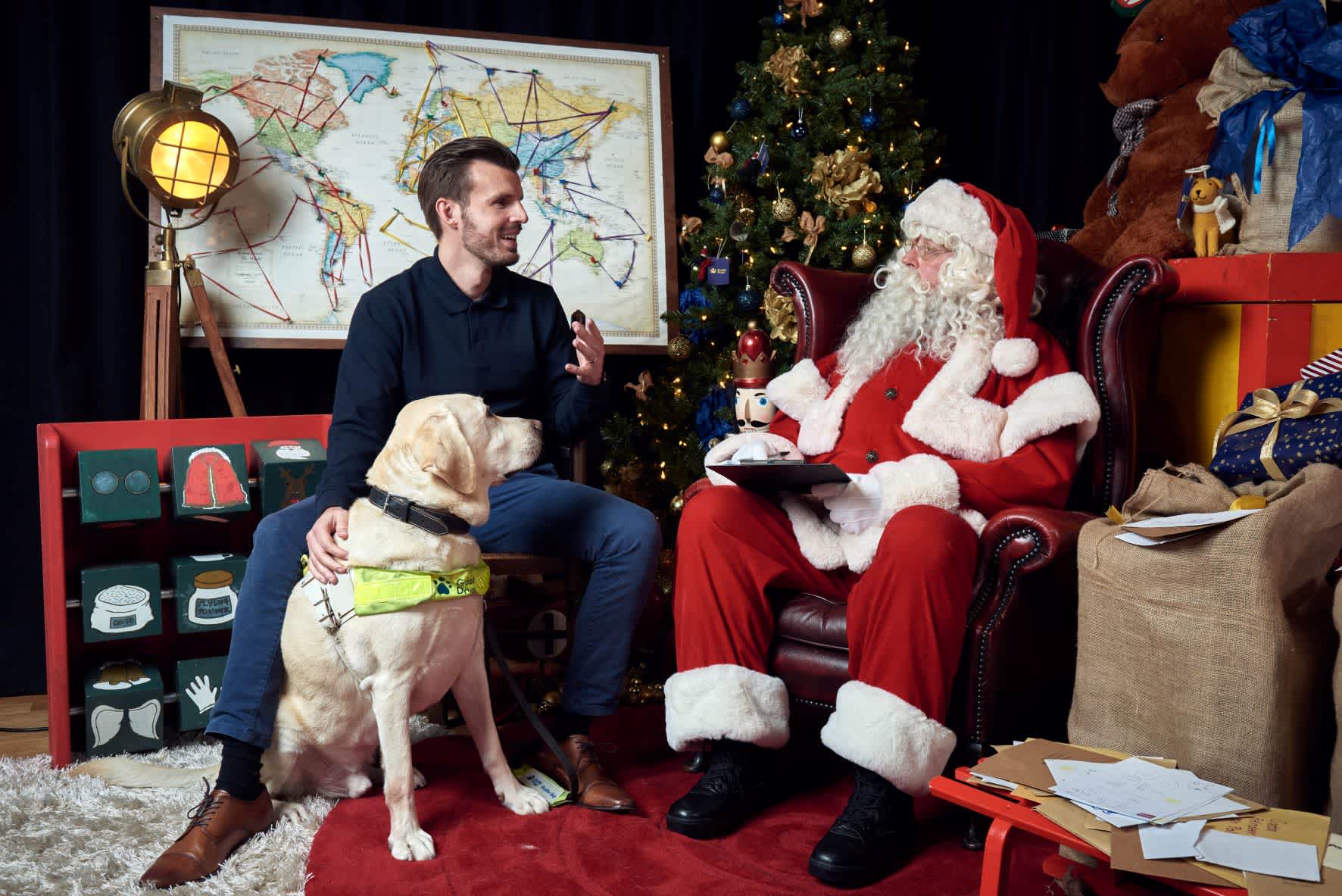In true Love Island intro style – Hi, I’m Lynette, and I’m a 34-year-old Community Fundraising Marketing Officer from the Wirral. I love reality TV and Love Island is probably one of my favourite shows. All my friends know that during Love Island season, I’m unavailable from 9-10pm! A little unknown fact about me? I’m a visually impaired guide dog owner.
The group chats; memes, reaction reels and morning after podcast – Love Island is my favourite conversation from the moment they unveil the new islanders. And this year, my friends were tagging me in posts within minutes about the first contestant with a visual impairment.
It’s been a running joke for a while now that my friends wanted to sign me up – I’d never really thought of myself as someone who ‘fit the mould,’ so I was delighted to hear that they had cast someone with sight loss in this year’s series – Ron Hall.
Over the last few years, Love Island has done a lot to showcase more diversity; we had Hugo Hammond, the first islander with a physical disability, and last year Tasha Ghouri, the first deaf contestant. Disability representation on screen is important and this is another positive step the show is taking in the right direction to be more inclusive.
Ron lost vision in one eye after a football accident aged 8 but this hasn’t defined him – my first reaction when watching Ron’s VT was: “Yes, someone showing that people who are visually impaired are just the same as everyone else!” I’ve been visually impaired my whole life, and unfortunately it comes with pre-conceived ideas of what you can and can’t do. My friends treat me no different, but when dating or meeting new people you’d be surprised at the attitudes people have towards me, or the fact I have a guide dog. Hopefully, Ron’s openness about his sight loss is a step in the right direction to breaking down the stereotypes and normalising that vision impairment does not define someone.

Though improving the inclusivity in the cast is a great start – it disappoints me that viewers who are partially sighted or blind are still being excluded. This is due to the lack of audio description (AD) on the show. Audio description means people with sight loss can fully experience what is playing out on screen as it describes and brings to life all the visual elements of the content. For someone who is visually impaired, AD provides that extra layer of context to what is taking place on screen. Whether that is mannerisms, movements, facial expressions, or non-verbal communication, it helps build a full verbal picture for someone who is partially sighted. Try closing your eyes when you next start your favourite show. You will miss chunks of the story, and this is what AD is designed to fill.
It is therefore surprising that Love Island has failed to include AD on the programme for its visually impaired viewers (many of whom may be watching for the first time) whilst featuring the first partially sighted contestant.
Due to the nature of Love Island’s fast turnaround from recording to being on our screens each night, there is no attempt to provide audio description. This is something the visually impaired community have learnt to accept – it’s a bit like day-to-day life really, that doesn’t often come with audio description either. Whilst I understand the limitations the production teams are under, could they be doing more? The show has the comedic narration of Iain Stirling explaining the islander games or naturally islanders themselves describe what is going on for example when the “I’ve got a text” lands and it’s read out rather than just appearing on screen. But having never watched the show with audio description – who knows what parts I could be missing out on?

At work, when we have our inevitable daily Love Island catch-ups over a brew, I frequently find that sighted staff describe things I might not have noticed, but they are always happy to go into all the details, describing the people or the villa in all the juicy details. I am sure there are many other people with sight loss who need some gaps filling in.

Ignoring the timing problem, it also shocks me that of the eight seasons available on ITVX, none have been audio described despite their popularity. In fact, only 20% of shows on ITVX have AD and unless you like re-runs of Agatha Christie or those crime drama short series like The Suspect - which to be fair, I do like - there isn’t really much choice to get that reality show fix. Where is the ITV2 content? Short of watching Sam & Billie: The Mummy Diaries on repeat, there is little for the younger age demographic that has been audio described.
Love Island social media channels are important too – and though a lot of the video content now runs with subtitles and the team do provide alt text behind the photographs they share for anyone using voice over software to gain that extra context, more could be done to consider their video content. Take the ‘This or that’ islander reels – how easy would it be to have someone verbally ask the question and the islander say the answer rather than just visually walk off to the side with a music track playing?
Love Island is that one hour each night where I get to switch off from whatever is going on in my own life. It is being part of those friends WhatsApp chats, tuning into the morning after podcast while out walking with my guide dog, and that laughter filled office debriefs where everyone can be equal and connect on the same experiences.
So, ITV, don’t you agree it’s time to make Love Island more accessible as well as inclusive?



